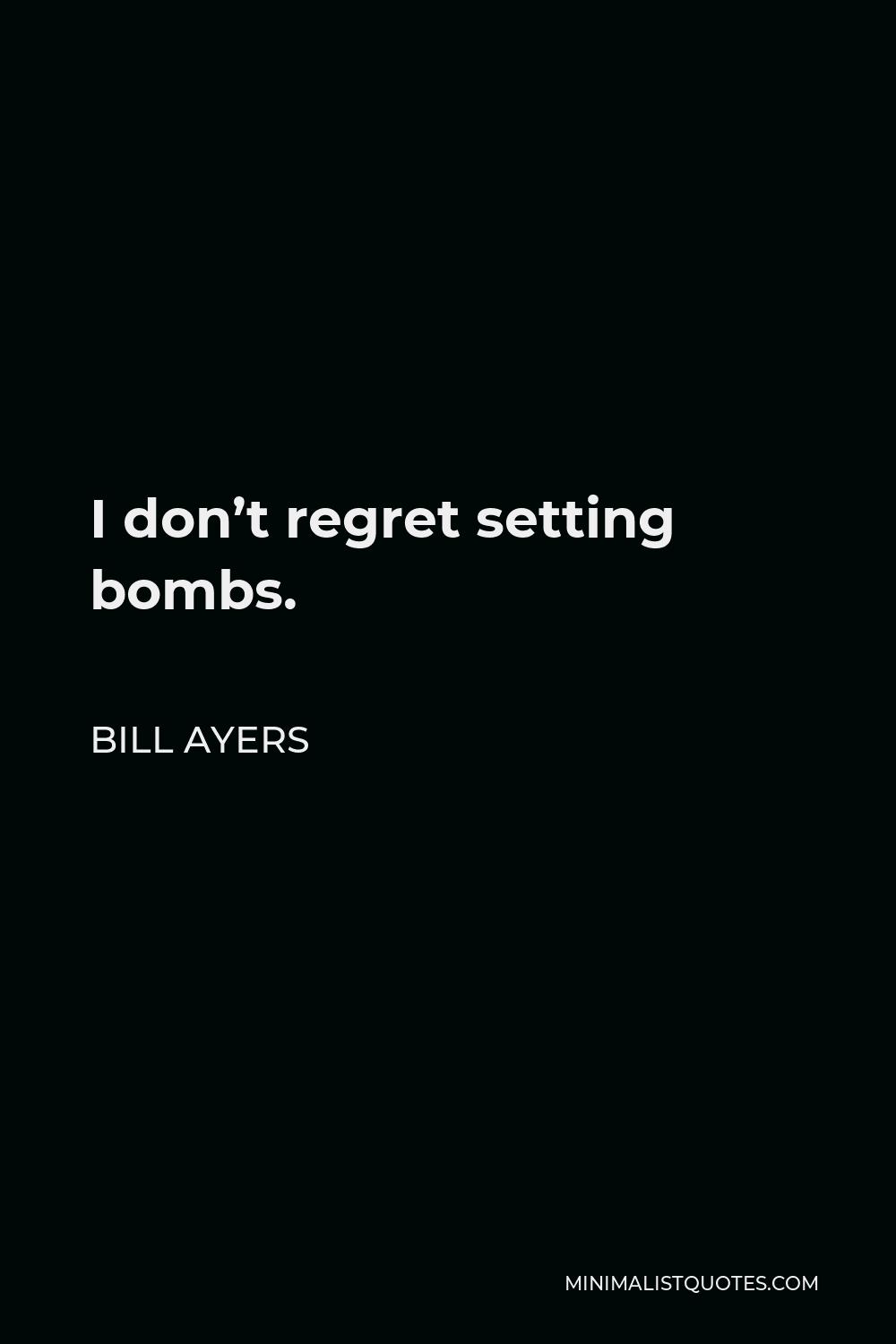You will be raising these kids in your mind your whole life. And they will change you. Your little contribution to it – twenty years from now, they’ll be marching off into other things and that’s still the legacy you leave.
BILL AYERSI don’t regret setting bombs.
More Bill Ayers Quotes
-





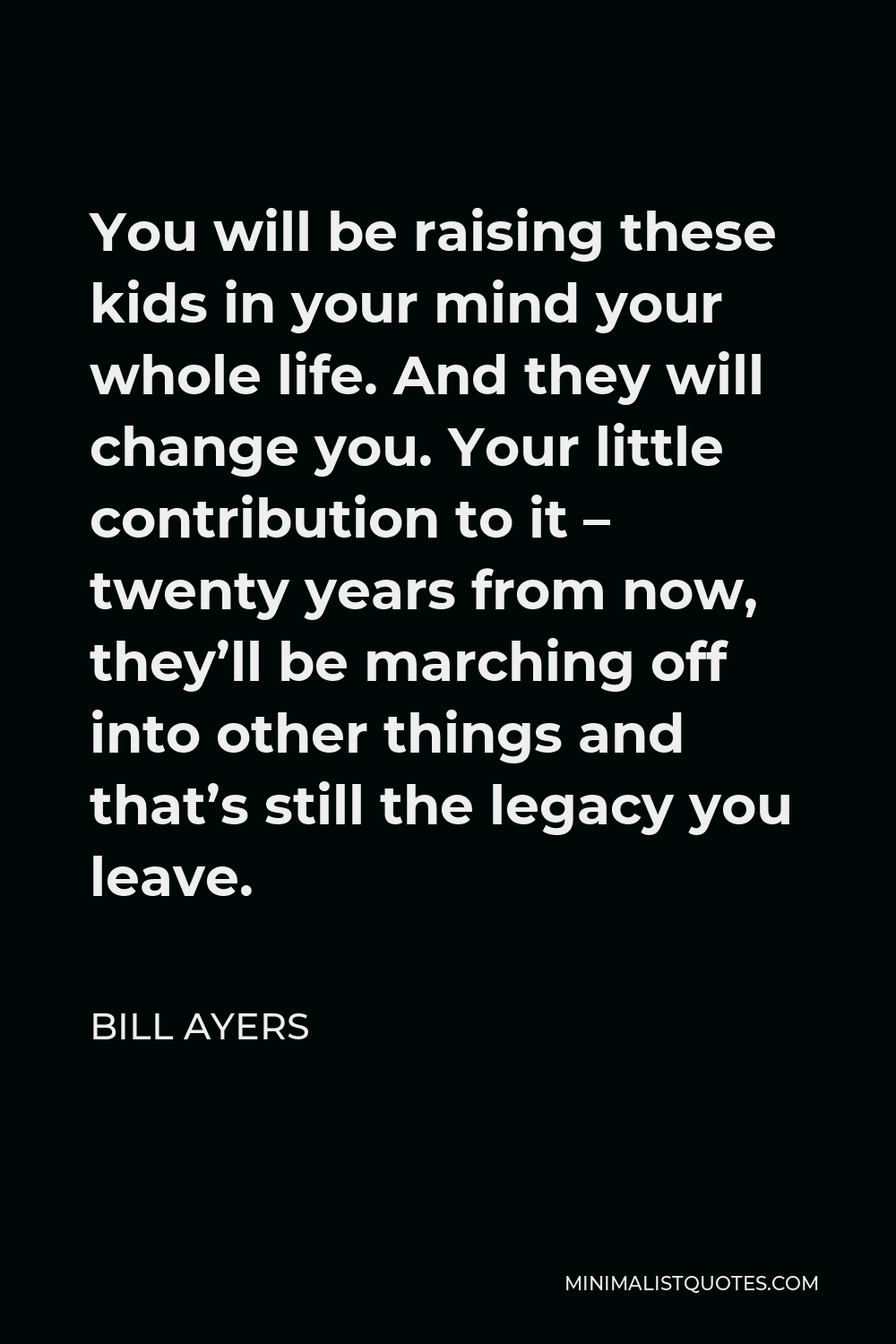
-





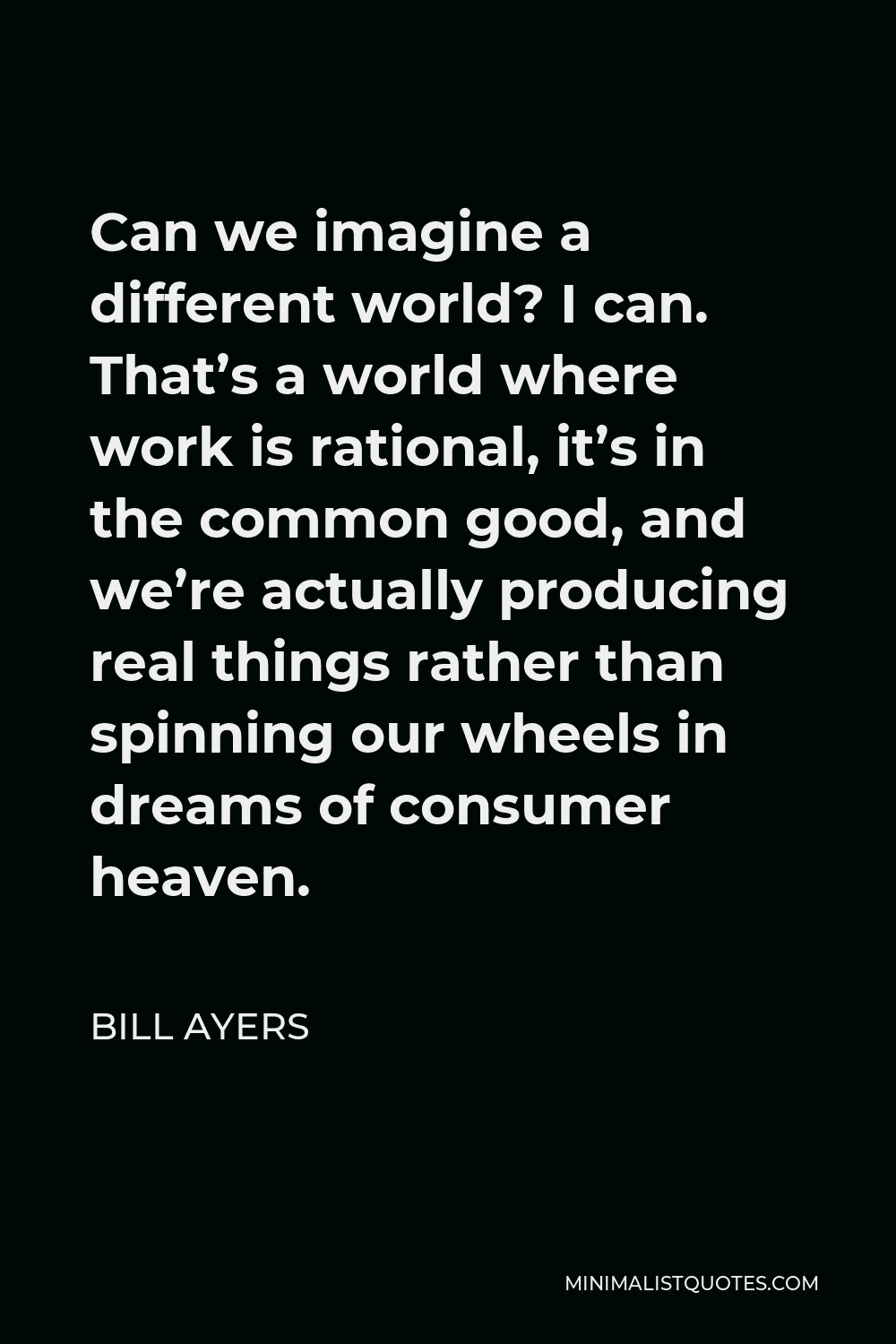
Can we imagine a different world? I can. That’s a world where work is rational, it’s in the common good, and we’re actually producing real things rather than spinning our wheels in dreams of consumer heaven.
BILL AYERS -





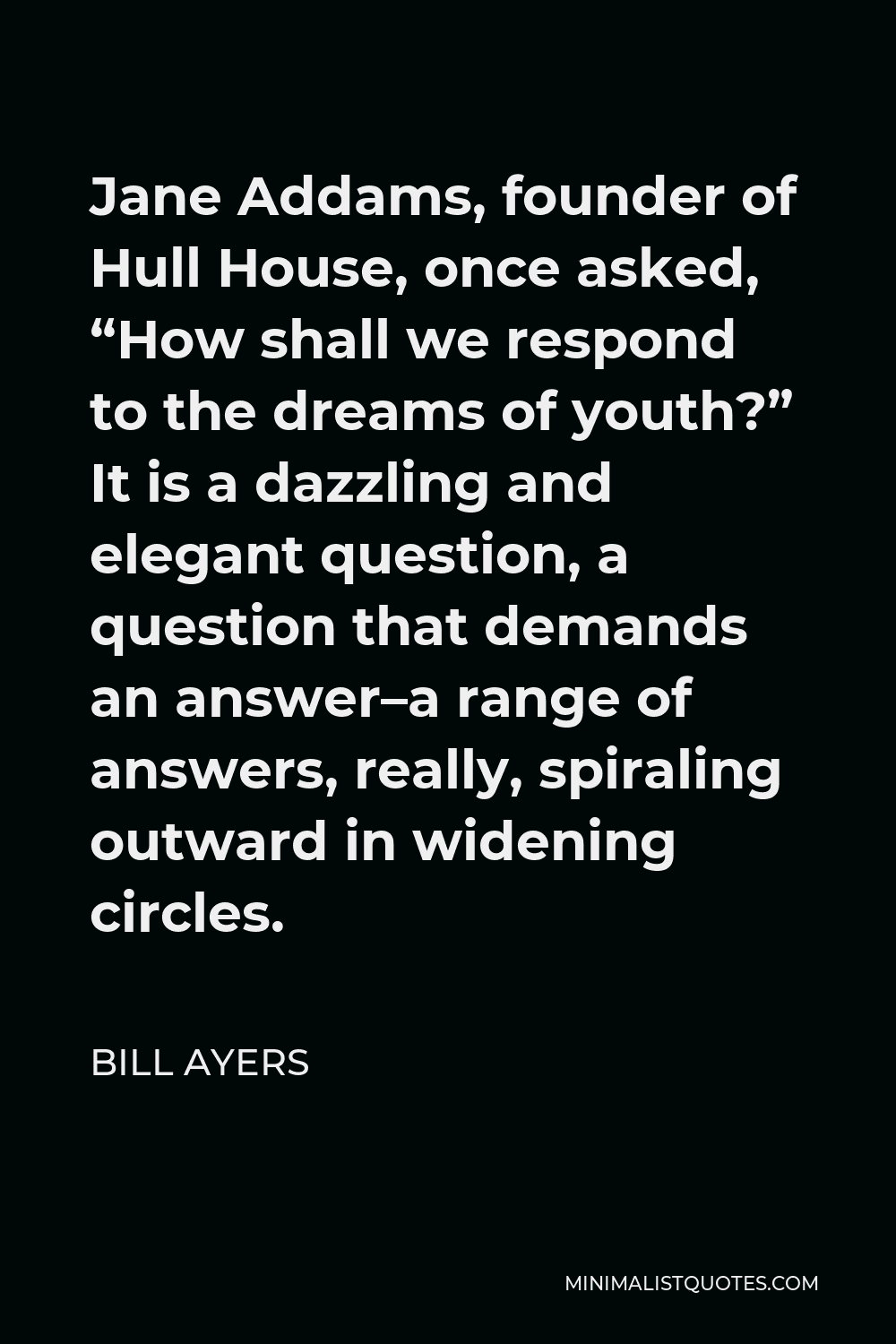
Jane Addams, founder of Hull House, once asked, “How shall we respond to the dreams of youth?” It is a dazzling and elegant question, a question that demands an answer–a range of answers, really, spiraling outward in widening circles.
BILL AYERS -





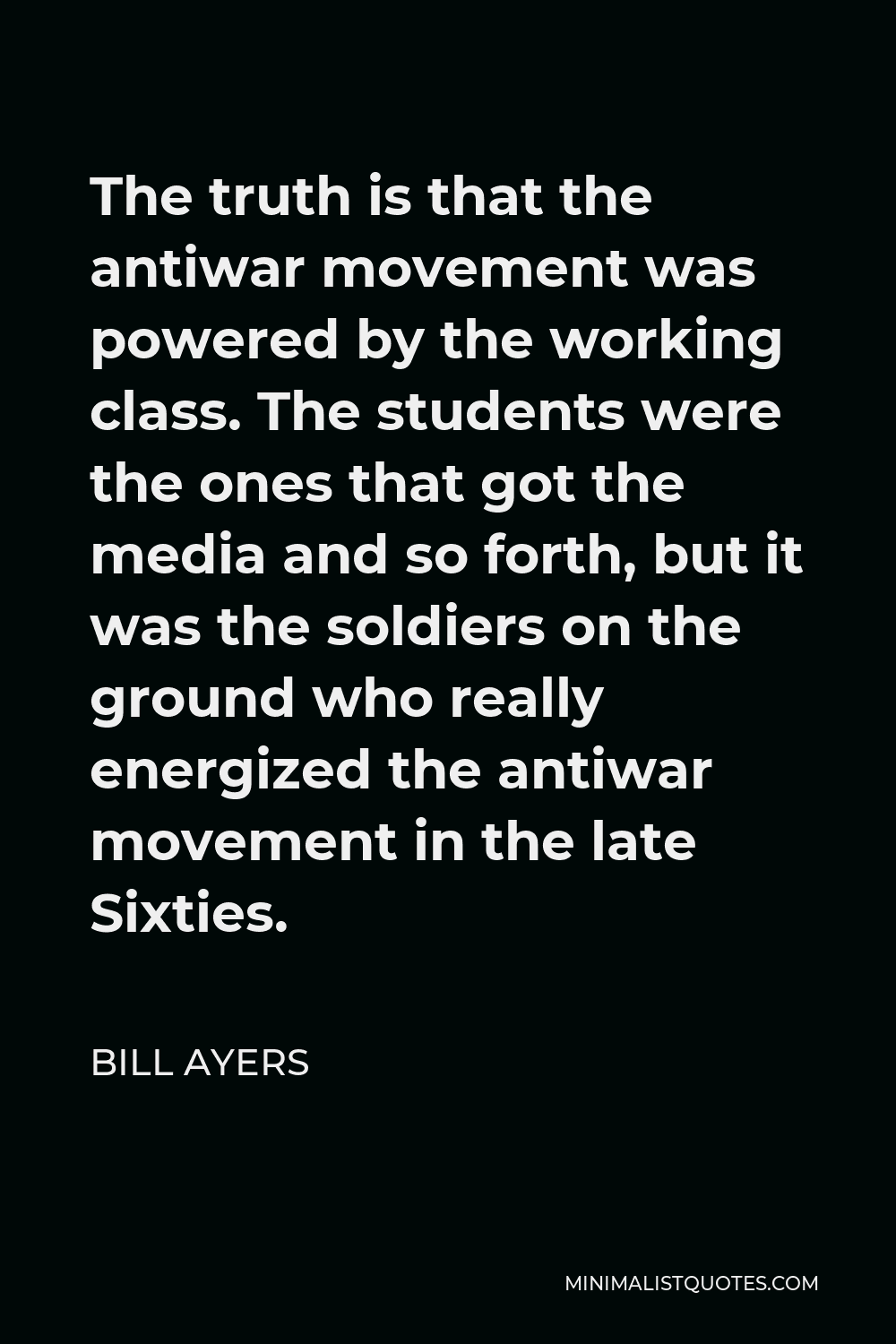
The truth is that the antiwar movement was powered by the working class. The students were the ones that got the media and so forth, but it was the soldiers on the ground who really energized the antiwar movement in the late Sixties.
BILL AYERS -





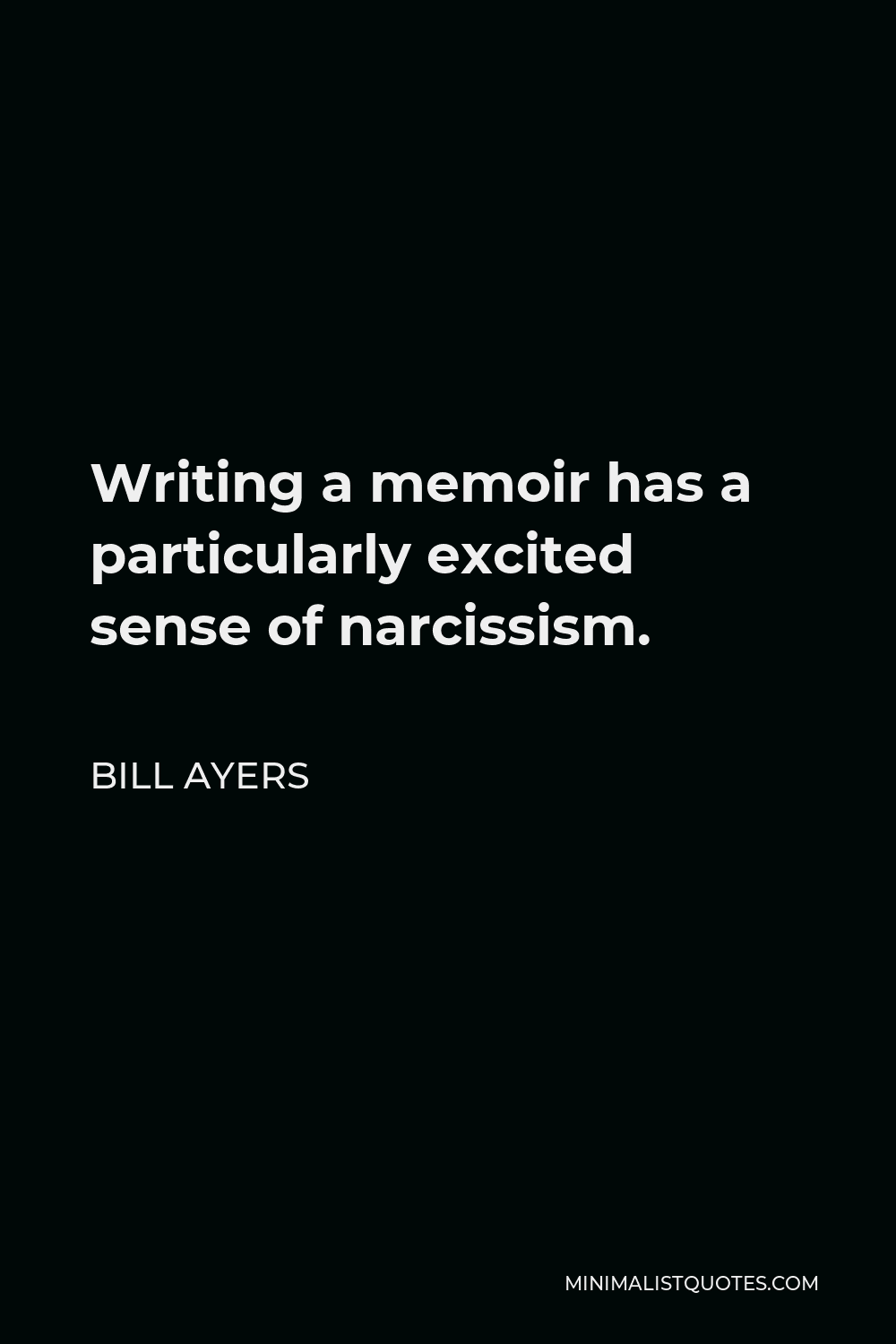
Writing a memoir has a particularly excited sense of narcissism.
BILL AYERS -






The world spends two trillion dollars a year on military, and of that two trillion the United States spends one trillion. We have a bigger military than the rest of the world put together. We have 150 foreign military bases.
BILL AYERS -





![Bill Ayers Quote - [Barack] Obama doesn’t disappoint me, because all during the campaign he said, I’m a pragmatic, middle-of-the-road, compromising politician.](https://minimalistquotes.com/images/barack-obama-doesnt-disappoint-me-because-all-duri.jpg)
[Barack] Obama doesn’t disappoint me, because all during the campaign he said, I’m a pragmatic, middle-of-the-road, compromising politician.
BILL AYERS -





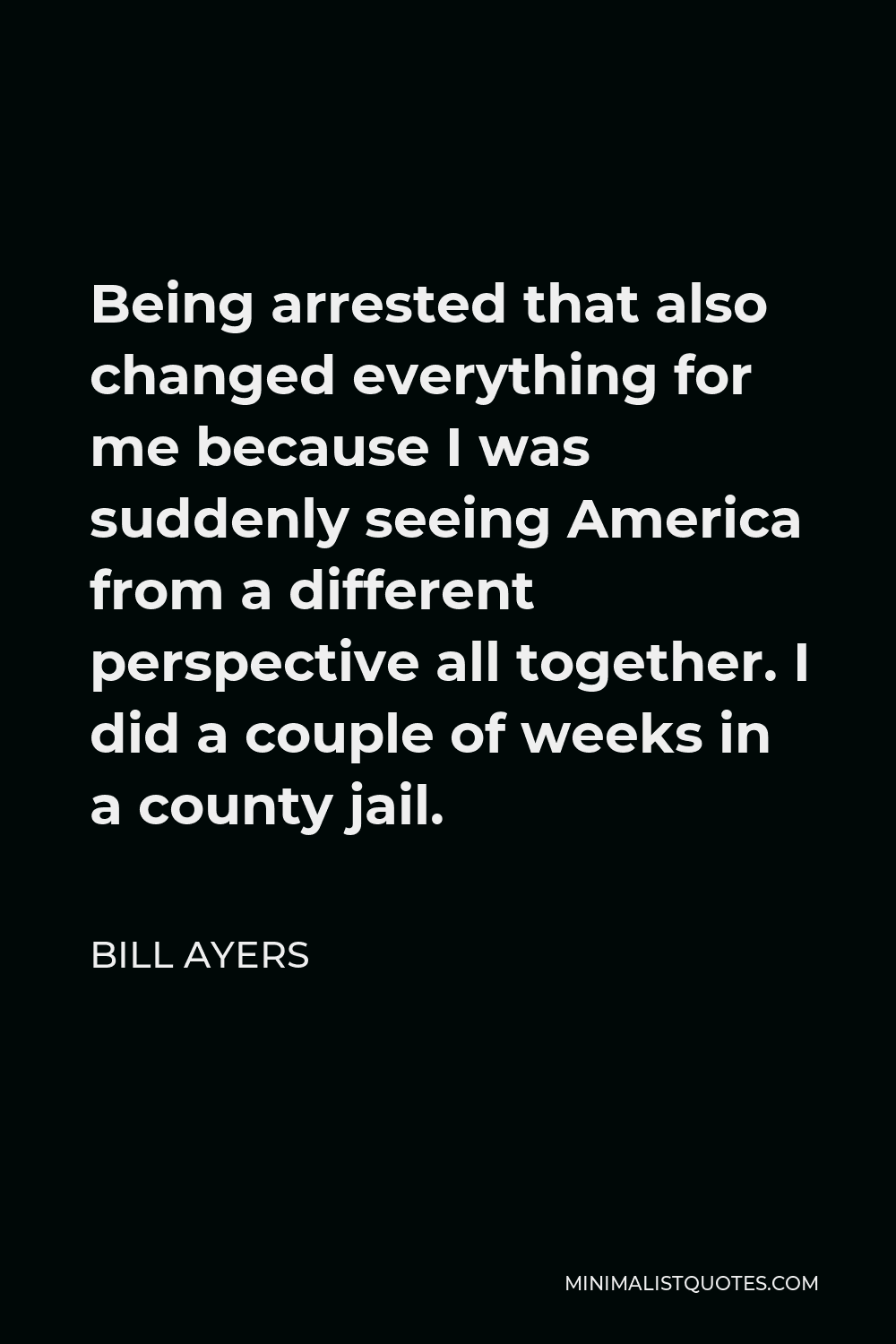
Being arrested that also changed everything for me because I was suddenly seeing America from a different perspective all together. I did a couple of weeks in a county jail.
BILL AYERS -





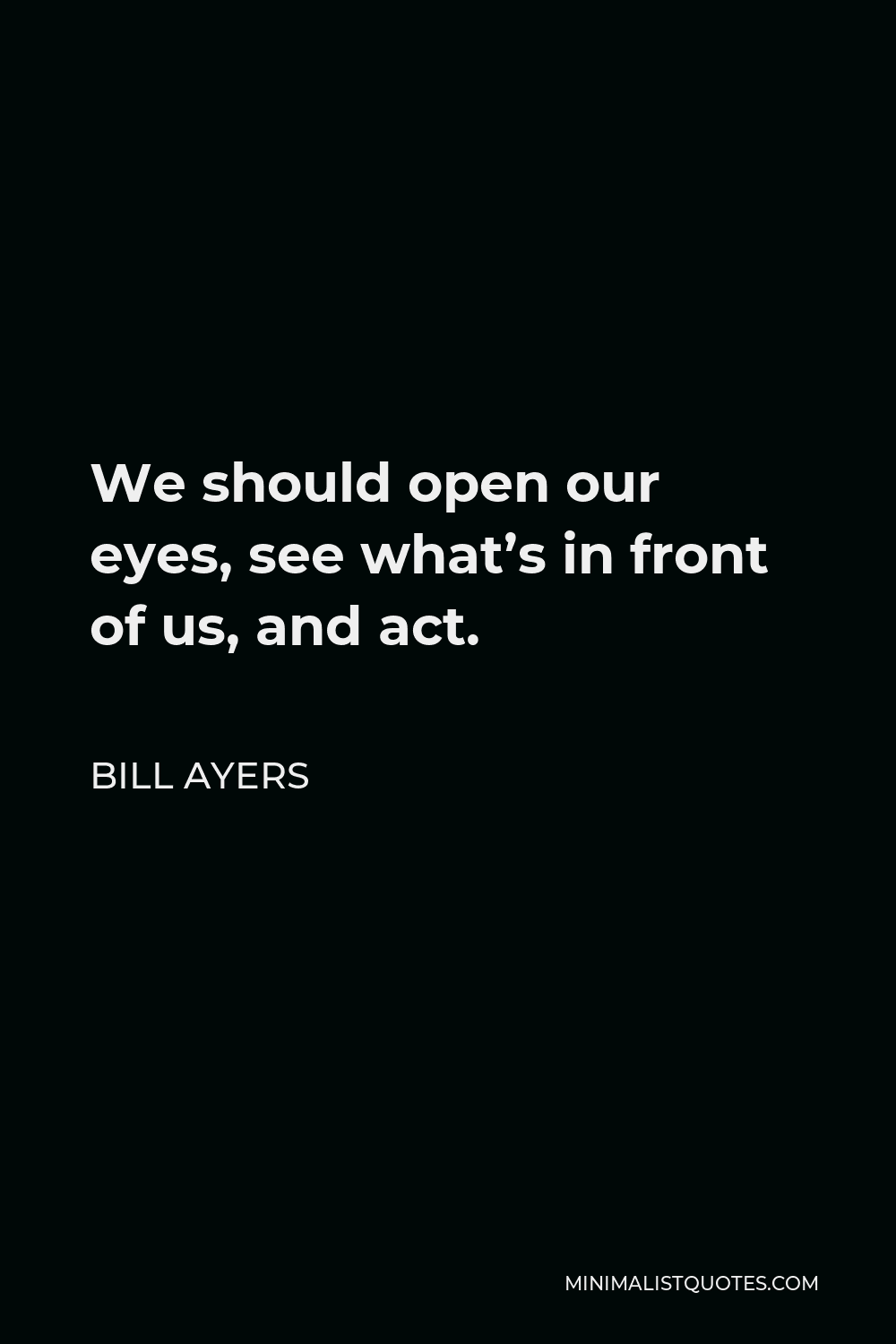
We should open our eyes, see what’s in front of us, and act.
BILL AYERS -





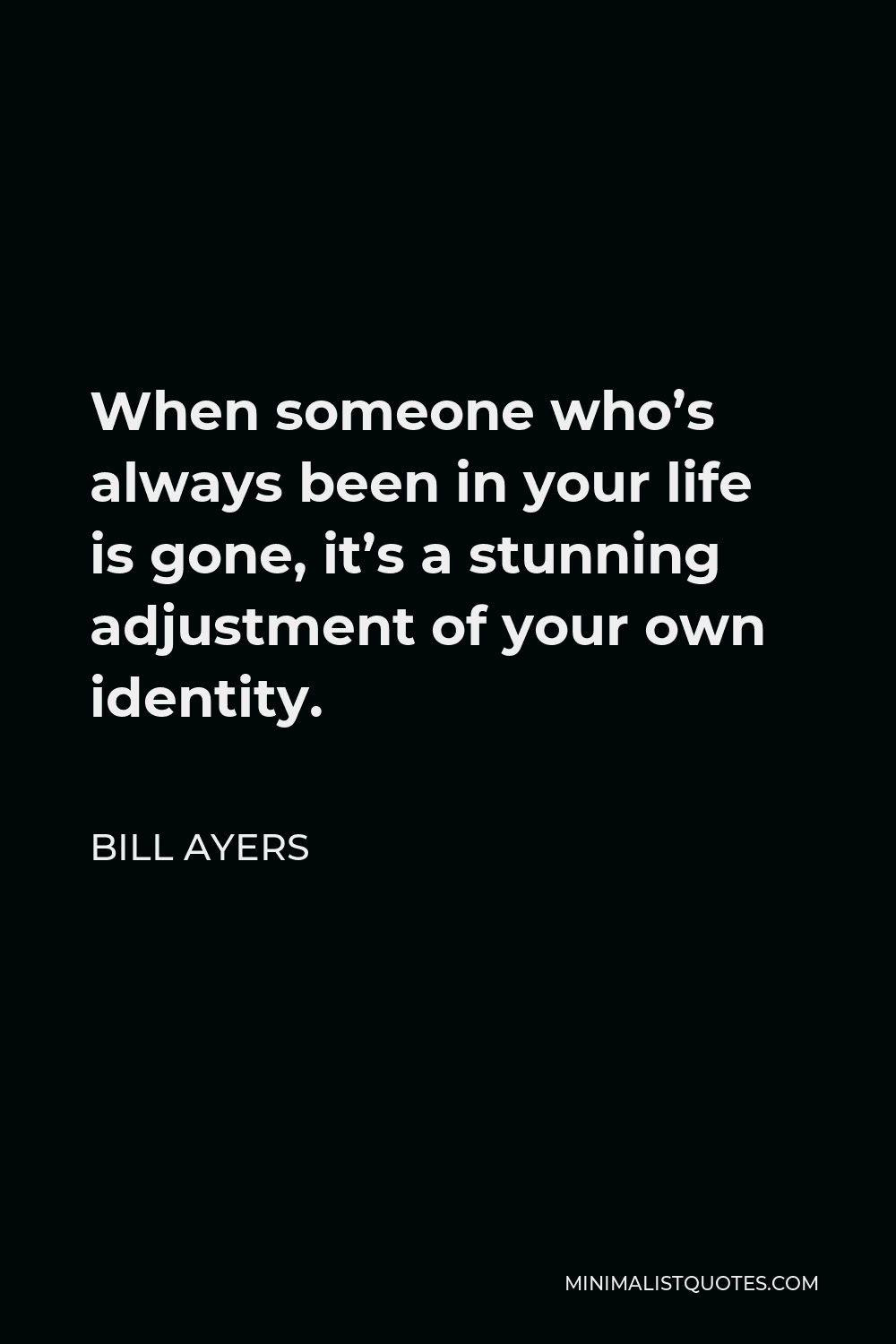
When someone who’s always been in your life is gone, it’s a stunning adjustment of your own identity.
BILL AYERS -





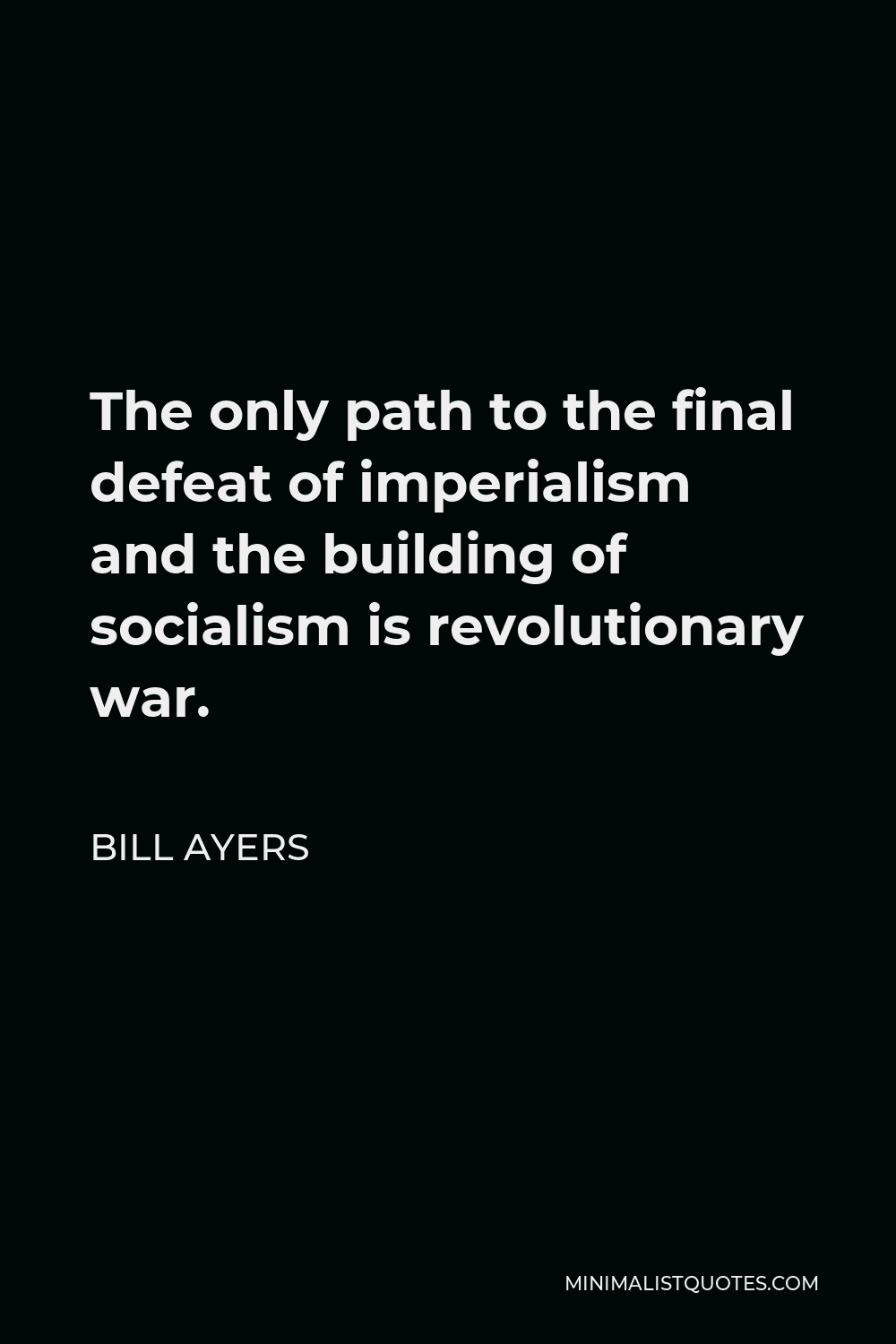
The only path to the final defeat of imperialism and the building of socialism is revolutionary war.
BILL AYERS -







Terrorists destroy randomly.
BILL AYERS -





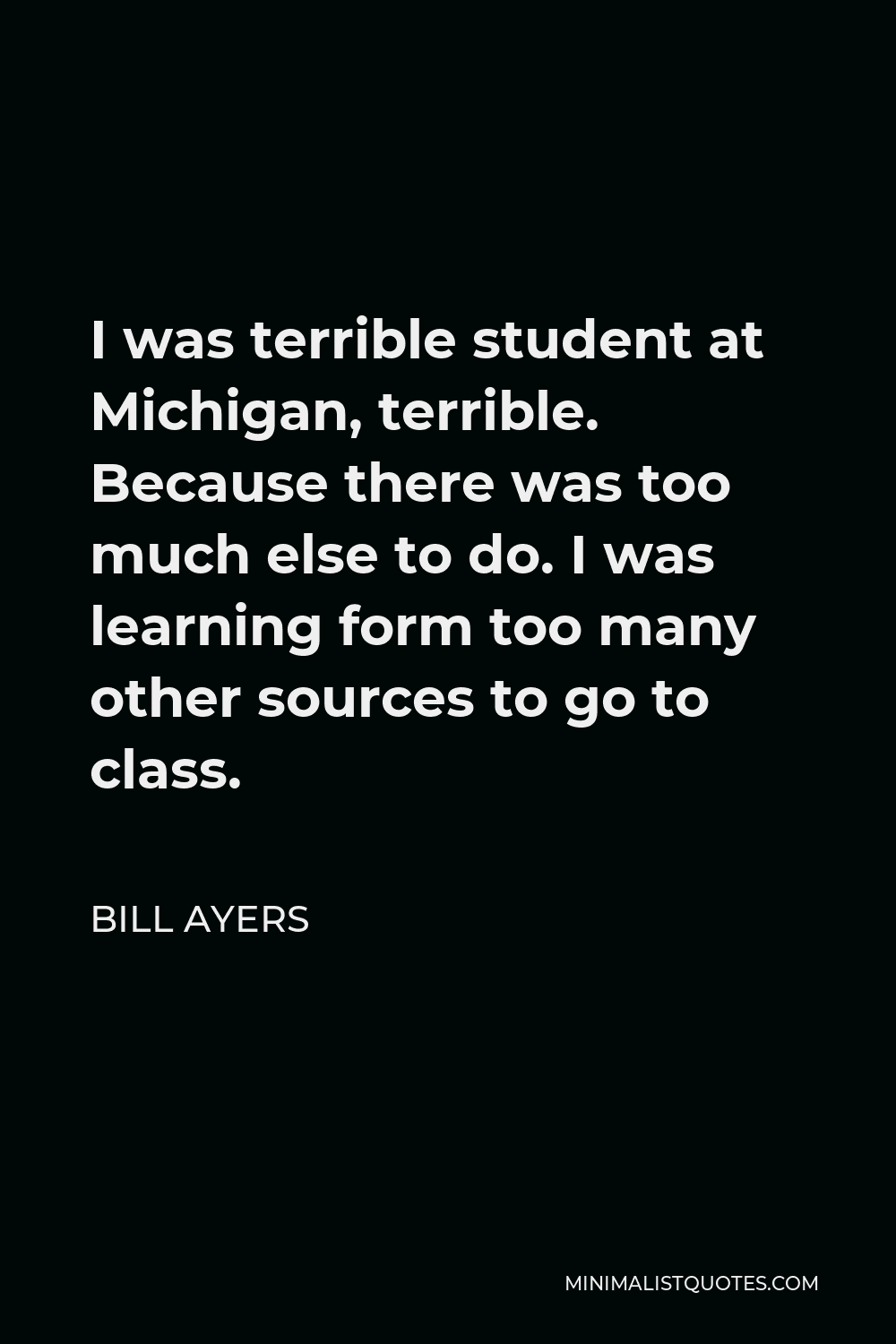
I was terrible student at Michigan, terrible. Because there was too much else to do. I was learning form too many other sources to go to class.
BILL AYERS -





![Bill Ayers Quote - [Barack Obama] was running for Senate and he’s saying, I’m not for gay marriage because I’m a Christian. Jump off a bridge! I mean what the hell are you talking about? You know,](https://minimalistquotes.com/images/barack-obama-was-running-for-senate-and-hes-saying.jpg)
[Barack Obama] was running for Senate and he’s saying, I’m not for gay marriage because I’m a Christian. Jump off a bridge! I mean what the hell are you talking about? You know,
BILL AYERS -





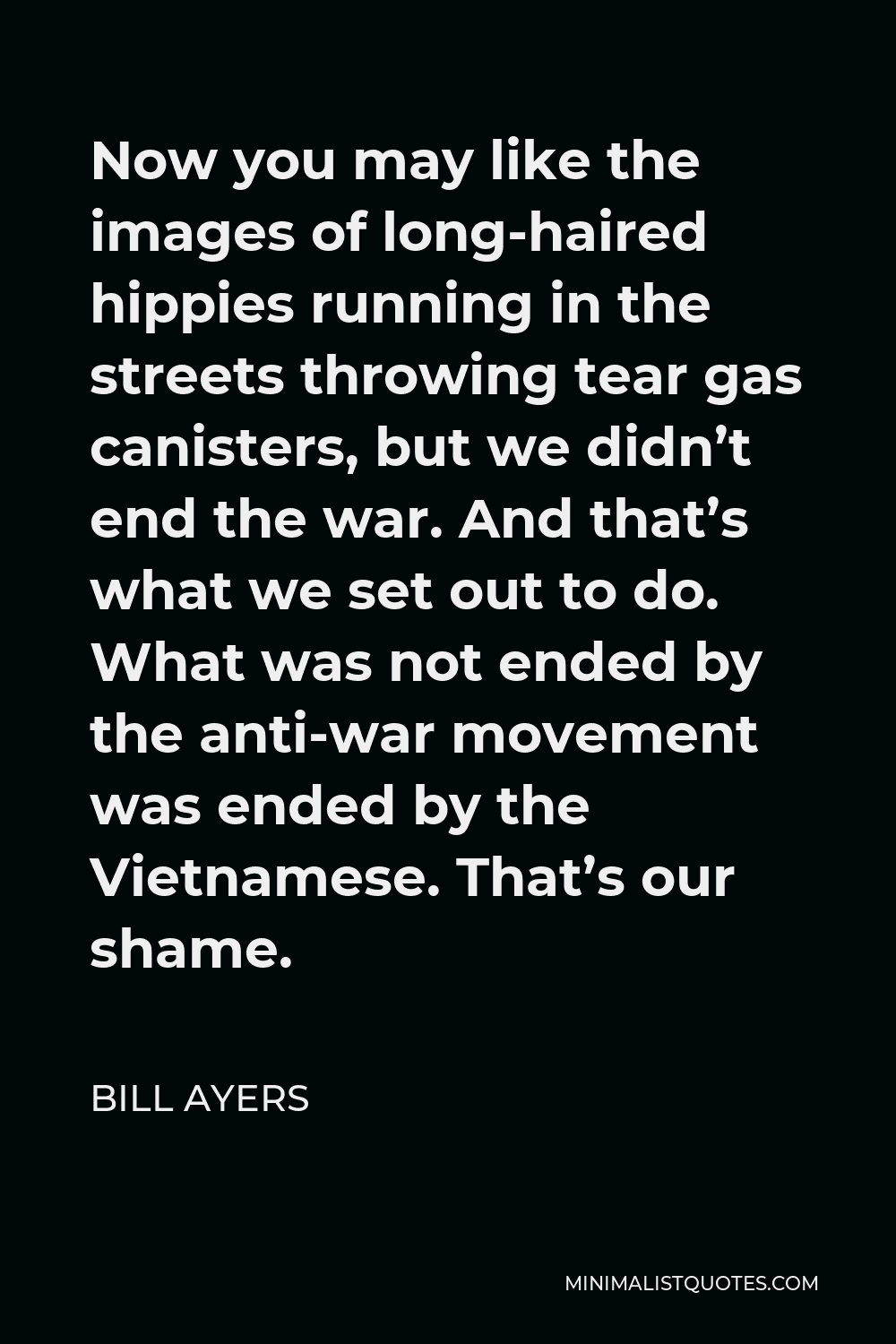
Now you may like the images of long-haired hippies running in the streets throwing tear gas canisters, but we didn’t end the war. And that’s what we set out to do. What was not ended by the anti-war movement was ended by the Vietnamese. That’s our shame.
BILL AYERS -





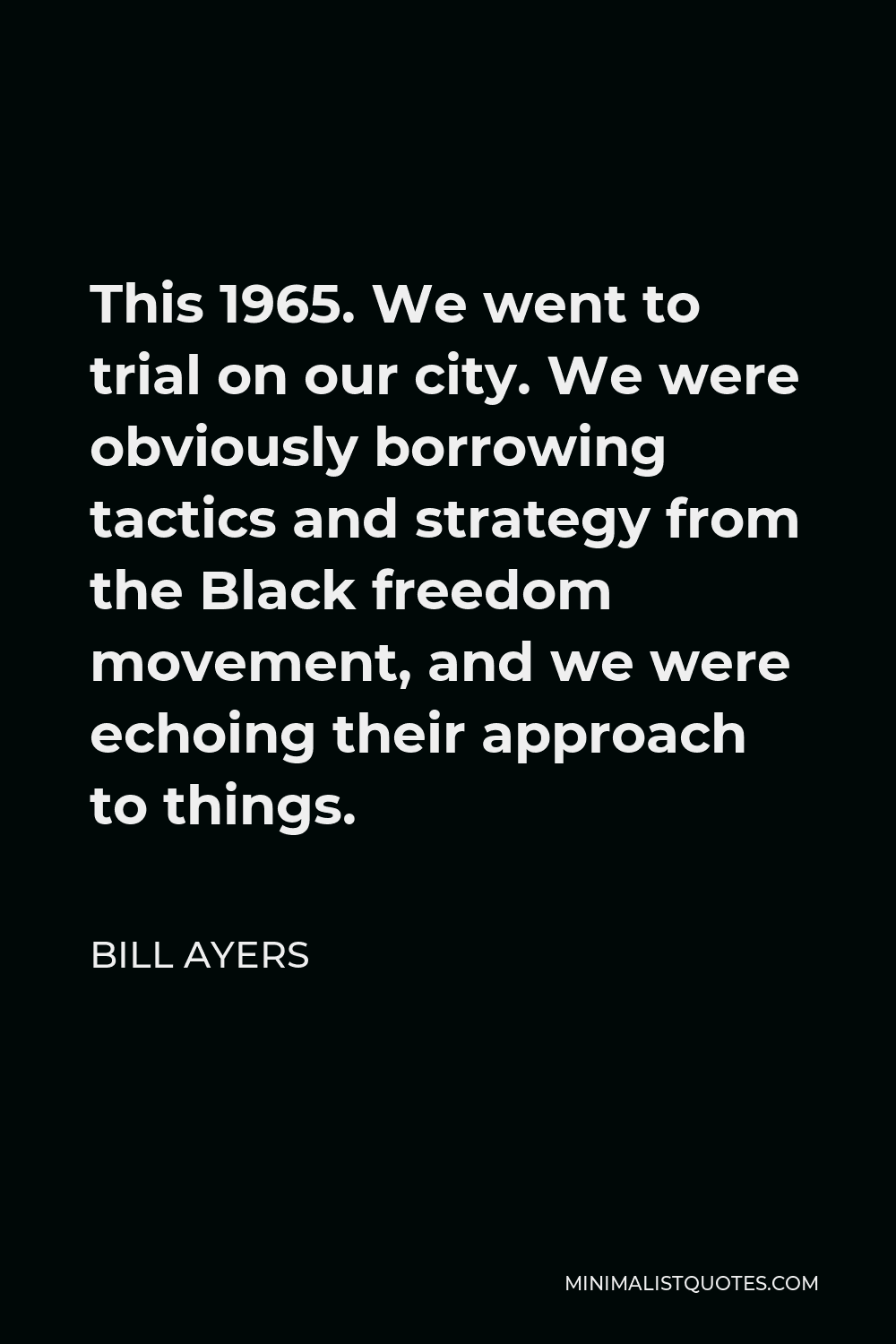
This 1965. We went to trial on our city. We were obviously borrowing tactics and strategy from the Black freedom movement, and we were echoing their approach to things.
BILL AYERS
